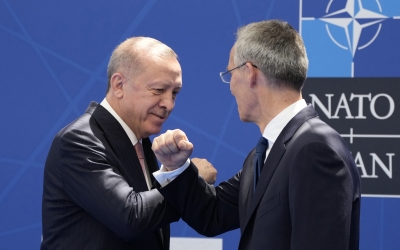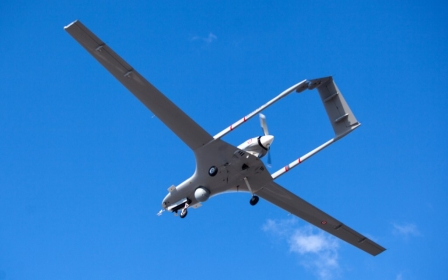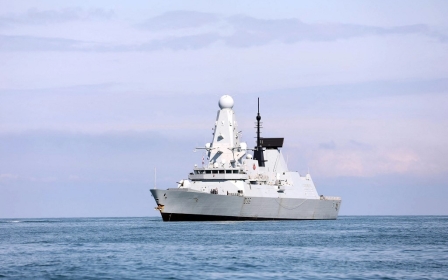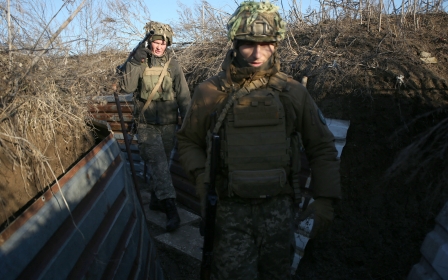Erdogan says West not helping solve Ukraine crisis as Russian warships dock in Syria
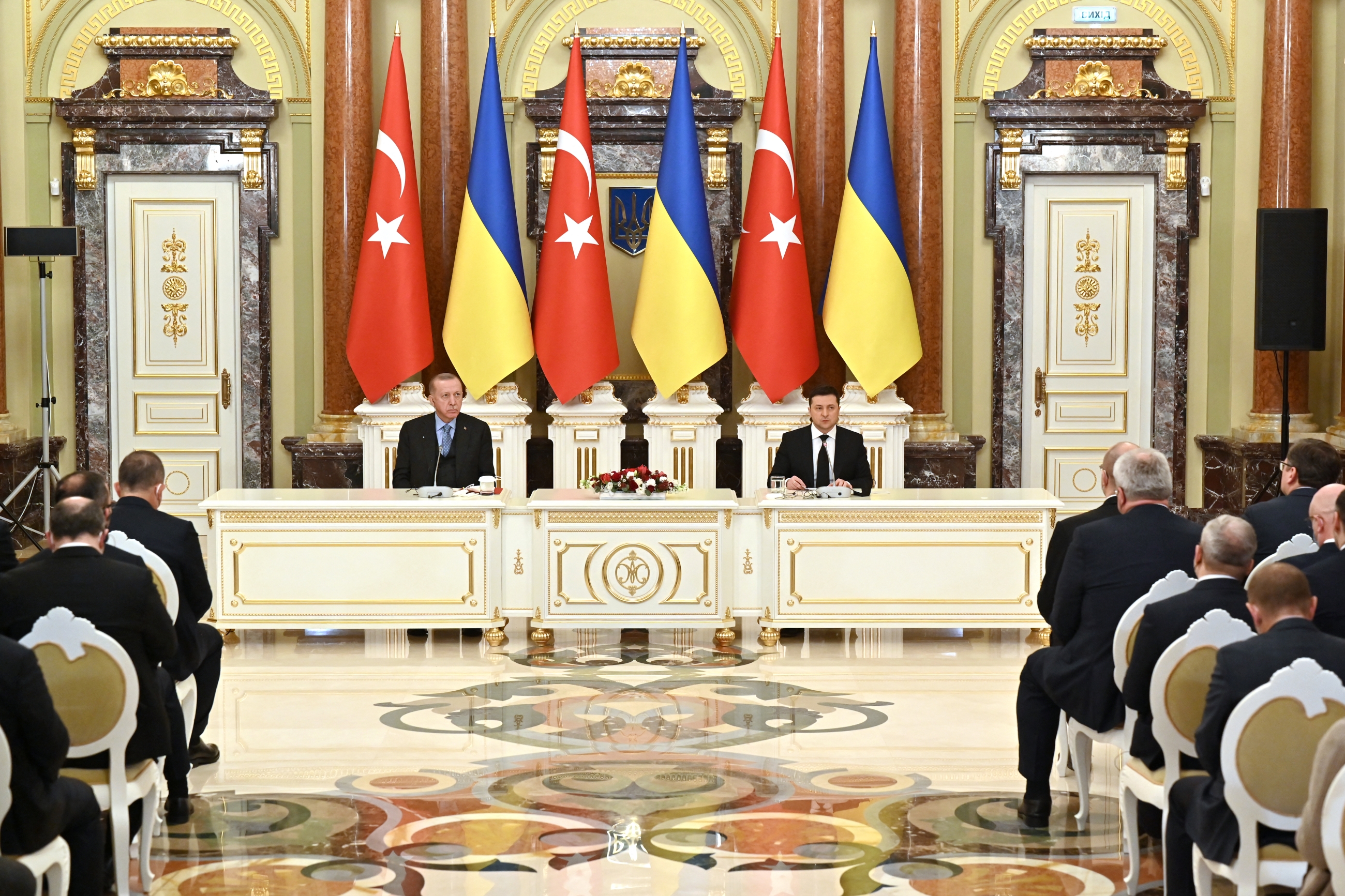
Turkish President Recep Tayyip Erdogan on Friday accused the US and other western nations of not contributing anything to help resolve the Russia-Ukraine crisis.
Erdogan, who has been eager to bolster his image as a mediator between Moscow and Kiev, said no European leader was capable of resolving the stand-off, and that US President Joe Biden had yet to make a positive contribution.
"I have to say this very clearly: if you pay attention, the West has unfortunately not contributed anything to solving this matter," Erdogan told reporters on his return flight from a visit to Ukraine.
"I can say they were literally only a hindrance."
Erdogan said that Biden had yet to "demonstrate a positive approach" to the crisis, while he lamented what he described as a lack of European leadership.
New MEE newsletter: Jerusalem Dispatch
Sign up to get the latest insights and analysis on Israel-Palestine, alongside Turkey Unpacked and other MEE newsletters
'This could be a testing moment for the Turks'
- Stephen Flanagan, Rand
The Turkish president visited Ukraine on Thursday at a time of rising tensions between the West and Russia.
Turkey, a Nato member, has supplied Ukraine with armed drones and positioned itself as a vocal backer of Ukraine's sovereignty.
But Erdogan has tried to balance support for Kiev with his close relationship with Russian President Vladimir Putin.
While on opposing sides in conflicts including Libya and Syria, the two leaders have developed warm ties as they seek to manage differences in order to limit fallout in hotspots where their militaries operate in close proximity.
Turkey is also a key trade partner of Russia, and relies on the country for roughly half its gas supply. Ankara's purchase of the Russian S-400 missile system, to the consternation of the US and other western states, also offered a geopolitical fillip for Putin on Nato's southern flank.
Turkey is concerned that any conflict in Ukraine could destabilise the region. But even as he continues to vocally support his Black Sea neighbour, Erdogan has been careful to tread a fine line in his public comments.
Erdogan said last week that the West should take into account Russia's "reasonable security concerns" in Ukraine.
Russian warships gather off Syria
Turkey's geographic and political position means it could play a pivotal role in any conflict. It has exclusive rights to govern the passage of civilian and military ships through the Bosphorus straits, as set by the guidelines of the 1936 Montreux Convention.
On Friday, six Russian amphibious assault ships arrived at Russia's naval base in the Syrian port of Tartus.
Although Russia says the warships will remain in the Mediterranean for naval exercises, their journey from the Baltic Sea has fuelled speculation that they could be travelling to the Black Sea for use in a potential Russian invasion of Ukraine.
"Currently, the ships are in a roadstead in the Syrian port of Tartus, where they have begun replenishing their fuel and lubricants, fresh water and food supplies to the required level at the Russian Navy's logistic support facility in the Mediterranean," the Defence Ministry said in a statement.
Under the terms of the Montreux Convention, Russia, like other countries, must receive Turkey's permission to move battleships through the straits.
While Russia is given more leeway to navigate the passageway as a Black Sea country, provisions within the convention say that, in the event of an imminent or active conflict, Turkey is not obliged to grant transit for military vessels.
"If they [the Russians] do seek passage through the Straits, this could be a testing moment for the Turks," Stephen Flanagan, a senior political scientist with Rand, told MEE.
With Turkey potentially in the crossfire of any potential clash between the West and Russia, Erdogan has stepped up efforts to serve as a mediator, putting some distance between himself and any immediate clash.
He invited Putin to Turkey last week, and in a speech on Tuesday said: "We [Turkey] would never want a war between Russia and Ukraine."
"I hope we can resolve this peacefully," he added.
Middle East Eye delivers independent and unrivalled coverage and analysis of the Middle East, North Africa and beyond. To learn more about republishing this content and the associated fees, please fill out this form. More about MEE can be found here.


